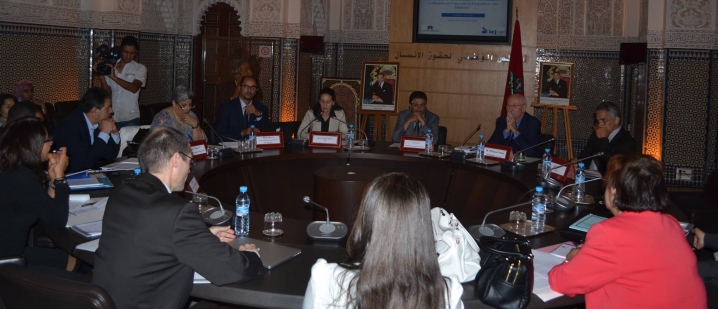Roundtable on justiciability of ESCRS: participants urged Moroccan government to ratify optional protocol to the international covenant on ESCRS
The National Human Rights Council (CNDH) and the International Commission of Jurists held on 16-17 June, at the Council in Rabat, a roundtable on the justiciability of economic, social and cultural rights (ESCRs).
The participants addressed several recommendations to the Moroccan government to improve ESCRs in Morocco and strengthen the role of courts in the implementation of these rights. They urged the Moroccan government to ratify the Optional Protocol to the International Covenant on Economic, Social and Cultural Rights and ensure the right to effective remedy for ESCR violations.
The participants recommended a broad reform to ensure the protection and implementation of the ESCRs, taking into consideration the provisions of the International Covenant and international human rights law. The reform packages they aimed at concerned the judiciary, the penal code, public policies, etc. They also recommended human rights to be part of the curricula of judges’ training and called on judges to take into account international and foreign jurisprudence.
The International Commission of Jurists released in October 2013 a study on access to justice for economic, social and cultural rights in Morocco. It welcomes the provisions of the 2011 Constitution and the recent social policies initiated to improve access to important social services and goods, especially to the benefit of disadvantaged and marginalized sectors of the Moroccan society. It identifies and describes significant gaps and issues in the normative, institutional and remedial frameworks that deprive many Moroccans from accessing justice in cases of violations of ESCR, and from enjoying their right to an effective remedy when facing such violations.























